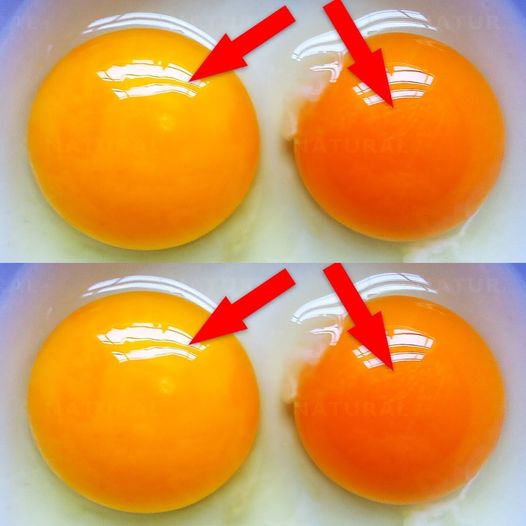4. No Indicator of Egg Freshness
The color of the yolk has nothing to do with the freshness of the egg. Freshness is determined by how long the egg has been stored. To check for freshness, you can do the float test—place the egg in water. If it sinks, it’s fresh; if it floats, it’s time to discard it.
5. Free-Range vs. Factory-Farmed Eggs
Eggs from free-range hens, which have access to a more diverse diet, typically have darker yolks. Factory-farmed eggs often come from hens fed a processed, grain-heavy diet, resulting in lighter yolks. However, some commercial farms add color-enhancing additives to the feed to artificially darken the yolk.
6. Health Benefits of Dark Yolks
Yolks with a rich orange hue are often higher in lutein and zeaxanthin, two carotenoids that support eye health. These nutrients can help protect against age-related vision problems like macular degeneration and cataracts.
Conclusion
The color of your egg yolk reflects the diet of the hen, and darker yolks are usually more nutrient-dense. While yolk color doesn’t necessarily impact taste or freshness, opting for eggs from hens raised in natural, free-range environments often means you’re getting more nutritious eggs.
So next time you crack an egg, take a moment to appreciate the color of the yolk—it’s a little clue into the health and diet of the hen that laid it!
Read more on next page
